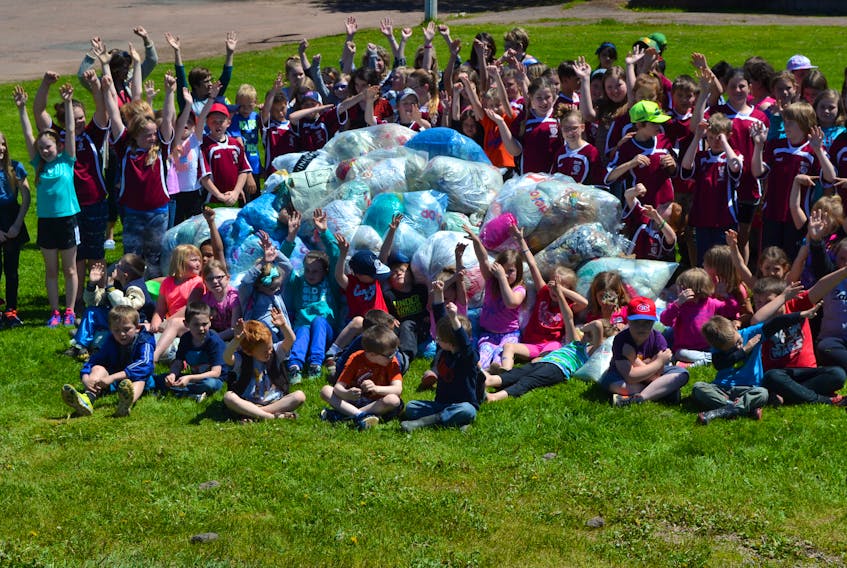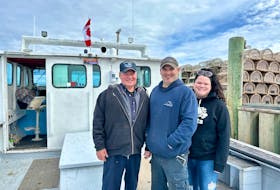CHARLOTTETOWN
What to do with the growing mountain of plastic carry-out bags is a question many jurisdictions across North America are struggling with since China closed its doors to the shipments last year.
Gerry Moore, CEO of the Island Waste Management Corporation said P.E.I.’s stockpile has been kept in check so far by diverting bales of plastic to the P.E.I. Energy Systems Waste Plant for producing thermal energy.
Moore is not sure whether the demand for the bags will drop off at the Energy Systems plant once warmer weather arrives. “It handles the supply right now,” he said.
“There are millions of those bags collected on P.E.I. on an annual basis, to the point we bale these materials and roughly get about 10 tractor-trailer loads of baled plastic carry-out bags on an annual basis,” Moore reported.
“We do have the luxury here in P.E.I. to utilize that material to create energy at the P.E.I. Energy facility and that’s what we took advantage of until this blip is behind us.”
The Chronicle Herald has reported the stockpile of plastic bags was getting so big in Halifax that the Nova Scotia Department of Environment has given the capital city a reprieve, temporarily lifting its ban there on burying the plastic from January until July. The city had more than 300 tonnes of the material on hand and the Colchester Materials Recovery Facility has 17 containers filled with the baled plastic, about 408 tonnes.
Each one-tonne compressed bale contains hundreds of thousands of carry-out bags, Moore estimated.
An internet search places the weight of the carry-out bags at four to 6.5 grams. At an average weight of five-and-a-half grams, it would take approximately 182 bags to add up to one kilogram.
Moore said other plastics, such as the ones used in making margarine containers, peanut butter jars and ketchup bottles are still in demand.
He is hopeful that markets for the carry-outs will reopen and others will expand. He saw signs of that in the past two weeks with IWMC being able to ship some material.
Moore acknowledges some jurisdictions have put restrictions and levies on the use of plastic bags and some jurisdictions have actually banned their use. Some stores, including Walmarts, have started charging for their carry-out bags. Anika Malik, Director of Corporate Affairs for Walmart Canada says the stores’ five-cent user-fee for plastic bags has encouraged customers to switch to more sustainable options, such as reusable bags. Walmart Canada, she said used 50 per cent fewer plastic bags in its stores in 2017 than it did in 2015 before the fee was applied.
A portion of the user fee, Malik reports, has gone to support recycling initiatives such as the Plastic Bag Challenge which encourages students to gather up plastic bags from their homes and communities for recycling. Walmart, she noted is also a sponsor of Canada’s Waste Reduction Week.
Moore is encouraged that product delivered from P.E.I. has a good reputation in the marketplace. Because the recyclables are source-separated at home, he said the material arrives at IWMC cleaner than it does in jurisdictions where a wider variety of recyclables arrive in the same containers.
“Our material, for the most part, anybody who receives it likes it. We may be the last one to be left out, because people don’t want to see ours go to a competitor,” he said.
“We see this as a short-term problem in the recycling business,” Moore emphasized. “The material has value. It is, for the most part, solid petroleum. That’s what’s used to make the materials.”
He said the carryout bags have various manufacturing applications, such as in the making of vinyl and laminate flooring and even carpeting. “We’re seeing other jurisdictions in North America have taken it upon themselves to see an opportunity to utilize this material.”
Despite the volume of bags sent to the IWMC annually, Moore wonders that would be enough to support a commercial venture without drawing in bags from other jurisdictions. He said IWMC is interested in talking to anyone who has a plan.









